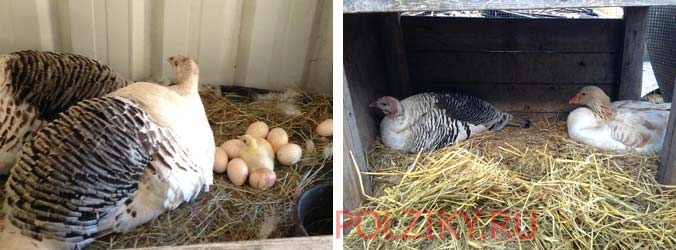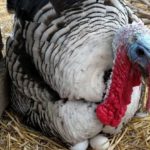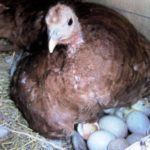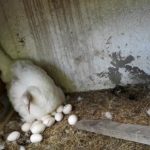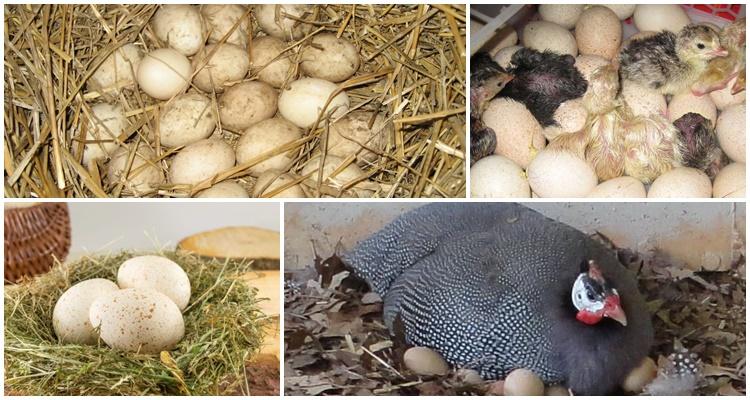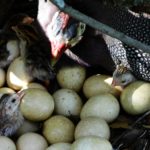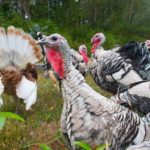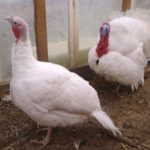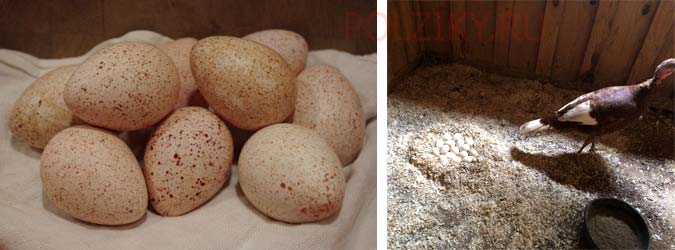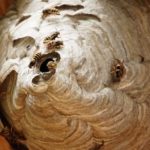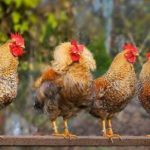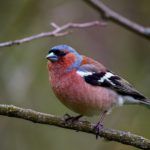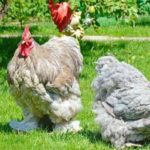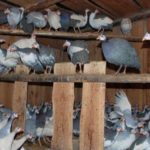Today, farmers are increasingly raising turkeys on their farms. This is due to the high nutritional value and excellent taste of meat. In addition, the eggs of these birds bring great benefits to the human body. For bird rearing to be successful, it is important to get healthy offspring from them. To do this, it is worth mastering the process of breeding birds. Beginning farmers are often interested in exactly how long turkeys sit on eggs.
What you need to know about the laying turkey
Turkey breeding is quite profitable.This is an excellent solution for small farms. Moreover, the birds quickly reach sexual maturity. In most cases, egg production occurs at 7-10 months. At this age, birds can be fertilized.
Some breeds lay eggs later - at about 1 year. With proper maintenance and good care of the bird during the season, it is capable of producing 1 egg per day. Its average weight is 80-100 grams.
It is permissible to hatch eggs in an incubator or place them under the bird. In any case, it is possible to obtain healthy chicks. Raising turkey poults is easy. To increase egg production parameters, it is necessary to provide the birds with the correct housing conditions.
Age of sexual maturity of turkeys
The period at which birds reach sexual maturity is influenced by many factors. These include heredity, breed, body weight, maintenance characteristics, and the state of health of the bird. Typically, turkeys begin laying eggs at 7-10 months. Large individuals lay eggs for the first time at 32-36 weeks. At the same time, small birds often begin to lay eggs at 28-30 weeks.
The following signs help determine the onset of egg production:
- the female shows concern and tries to find a secluded place - there she begins to put leaves, branches, fluff;
- the bird doesn't go out for a walk in the morning;
- The turkey hides from other birds - it is difficult to see it indoors or on a walking area.
Most often, eggs are laid in March-April. The second stage begins in the fall.When raising birds industrially, it is possible to obtain eggs throughout the whole year. In such a situation, the process is not affected by climatic conditions or seasonal factors.
Maximum egg production is observed in young birds. When they reach 2 years of age, the rates drop significantly.
To encourage earlier egg laying, experienced farmers use additional artificial lighting in the poultry house.
How many days does a turkey sit on eggs?
The egg-laying process in birds begins in March or April. It lasts 2.5-3 weeks. In order for a turkey to hatch chicks, it is recommended to place 11-18 eggs under it. The specific quantity is selected taking into account the size of the bird. After about a month, the chicks hatch. The first turkey chick needs to be removed. When all the chicks are born, it can be returned to its place.
Number of eggs a turkey lays
Egg production depends on many factors - breed, heredity, care characteristics, health status, body weight of the bird. The longer the daylight hours, the higher the productivity of birds. Turkeys lay about 2-3 eggs every other day. Sometimes they give 6 pieces at once without intervals. This happens at 11-15 o'clock. The very first turkey eggs are given in the morning - before 8 o'clock. As a result, in a standard 3 weeks of breeding, the birds lay 40-60 eggs.
In order for a bird to hatch eggs normally, certain rules must be followed. It is important to consider that turkeys raised in an incubator have a poorly developed brooding instinct. However, they also manage to make excellent hens.
To help the turkey, you should adhere to the following rules:
- At first, it is not recommended to put a lot of eggs in the nest - 3-5 eggs will be enough.If you break this rule, the bird will crush the chicks. Therefore, after the birth of turkey chicks, it is recommended to carefully monitor the behavior of the bird.
- If there is increased anxiety or excitement in a bird placed on eggs, you should gently stroke it. Thanks to this, the bird will calm down and return to its place.
- It is recommended to place the nest in a closed space. This will help the bird feel calm and confident.
- Feeders with fresh food and drinking bowls with water should be placed near the nest. They should be located within reach of the bird.
It is recommended to remove the bird from the nest three times a day and let it go for short walks. This will help keep the hen healthy. During the incubation period, many birds stop eating and drinking. If the farmer does not intervene in time, there is a risk of the turkey dying.
Can a male hatch offspring?
Males can also hatch chicks. Turkeys are distinguished by their developed parental instinct. If for certain reasons a turkey does not sit on eggs or their number is too large, it is permissible to attract males for hatching.
However, not all birds are allowed to be used. Excessively large individuals are capable of crushing the shell with their mass or careless movements. Therefore, it is recommended to choose males that are the same size as the female or slightly larger.
It is recommended that the turkey create a comfortable nest. It should be placed in a secluded place. After this, place plaster casts. In the evening, place the bird on a false nest and cover it with a basin or box. It is important to do this so that the turkey can stand up to its full height.
It is recommended to release birds only for food.If after 3-4 days the turkey does not leave the designated place, this means that he will be able to hatch the eggs until the chicks hatch. At this point, it is allowed to lay real eggs and provide the bird with complete rest. It is worth placing water and food near the nest.
Possible problems
Sometimes birds don't want to sit on the nest. This usually happens when the nest is not arranged correctly. The following factors also lead to problems:
- stress;
- reluctance to adapt to a new nest;
- development of pathologies;
- violation of conditions of detention;
- unbalanced diet.
To achieve good results, you should follow the following rules:
- The nest should be located in a quiet and peaceful place in the house.
- If there are several nests, they should be separated by partitions. It is important to ensure that the turkeys do not see each other.
- The farmer must have easy access to the nest to clean and disinfect it.
- During the brooding period, it is important to exclude contact of females with males. The fact is that turkeys can also strive to nurse future offspring.
To assess a bird's readiness to hatch, it is worth paying attention to specific signs. She will begin to carry straw in her beak and hiss. 30 days after the start of incubation, offspring will appear. When comfortable conditions are created, chicks will hatch from almost all eggs.
In order for turkeys to fully hatch their eggs, they need to create optimal conditions. In this case, proper arrangement of the nest and preparation of a complete diet are of particular importance.

